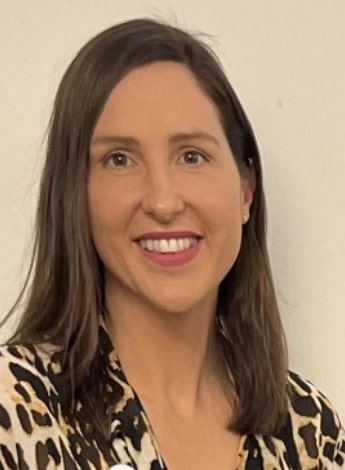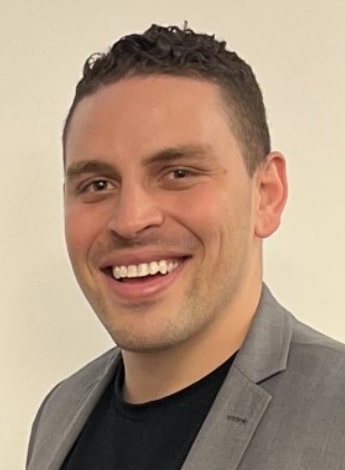
Are new graduates prepared?

Final-year physiotherapy student Martin Collyer and physiotherapist researchers Dr Roma Forbes and Curtley Nelson reflect on the role of the new graduate and call on the profession to consider changing the dialogue about our newest members.
One of the most important goals for any organisation is to attract enthusiastic and work-ready new graduates who will grow into highly skilled future professionals.
Like all new graduates, those leaving university with a physiotherapy degree are well educated, highly trained and usually ready to step up and contribute to their new workplace setting.
Most of the research on new physiotherapy graduates focuses on how prepared they are for entering the workforce and what education providers and workplaces should be doing to smooth this transition.
The current dialogue centres on how to attract the best new graduates, what mentoring they may need and the ways that existing staff benefit from leading mentoring and workplace support activities.

Martin Collyer.
Current insights on social media about new graduate physiotherapists focus on preparing graduates for contributing to the organisation and, in many cases, its relevant financial interests.
We argue that although understanding the preparedness of our graduates for the workforce is critically important, this current lens within the literature and our wider national discourse may be failing to acknowledge the valuable attributes of the new graduate.
These include generational diversity, creativity, innovation, their understanding of complex yet important societal issues such as First Nations health and their ability to critically bridge the gap between evidence-based practice and established clinical and organisational norms.
We know that the transition for the new graduate into the physiotherapy workforce is challenging (Lao et al 2021, Atkinson & McElroy 2016).
On the one hand, the new graduate is excited, eager and ready to contribute.
Their training has been grounded in current research and best practice with a strong focus on critical thinking skills.
On the other hand, they view themselves as often underprepared for aspects of their new role (Atkinson & McElroy 2016, Stoikov et al 2020, Wilesmith et al 2020) and may question how they can add value to their organisation.
Many new graduates will face some internal conflict when entering the workforce. ‘Will my own interpretation of best practice from my educational setting and my own experiences reconcile with those in my new practice setting? If there is a conflict between evidence and practice, is it my duty to question practice norms or to adapt to what I observe around me?’
Looking at this through a different lens, the new graduate may play a crucial role as a conduit between the academy and the clinic and between ideas of best practice and established norms.
Is their recent exposure to best-practice guidelines during training, in addition to fresh, creative and diverse perspectives, an under-acknowledged strength of the new graduate?
The literature outside physiotherapy suggests so.
New graduates, mostly gen Z, can embrace digital transformation with relative ease, will actively seize developmental opportunities and are likely to have strong critical thinking skills (Chapman & Kessi 2021).

Dr Roma Forbes.
We can add to this the resilience gained through meeting strict and challenging educational requirements during a global pandemic.
There may be great tension in these ideas, adding to vulnerabilities inherent in the new graduate’s role.
Embracing a new perspective is not possible without senior clinicians, employers and our profession actively seeking to empower the voices of new graduates.
Will new graduates’ perspectives be respectfully heard at all levels of organisations and our profession, allowing them to make valuable and worthwhile contributions?
Even if they question longstanding clinical or organisational norms?
This tension also comes into play during physiotherapy education.
Students are often informed of the qualities that they should exhibit during clinical placements, with an understandable emphasis placed on being willing to learn and to fit in.
Clinical educators feel that students are better prepared for clinical placements when they possess attributes such as ‘willingness’ and openness to feedback.
Such educators are less in agreement, however, that students are prepared for placement environments if they show qualities of being ‘assertive’ or ‘creative’ (Chipchase et al 2012).
The internal conflict that new graduates may face when they apply their critical thinking skills to perceived deviations from best practice would therefore not be surprising given their experiences as students.
Offering a more organisational and professional voice to students in our workplace and profession may encourage graduates to step up and embrace innovation.
For students and new graduates, opening a space for dialogue that questions practice norms and sparks innovation may also be an opportunity for leadership.
Within the physiotherapy practice thresholds in Australia and Aotearoa New Zealand, one of the seven roles in overseeing graduate requirements for practice and accreditation of our physiotherapy programs is that of manager/leader.

Curtley Nelson.
If we expect our new graduates to demonstrate leadership, we must ask whether we are giving them the opportunity to do so along with encouraging and valuing their voices.
As the adage goes, ‘old habits die hard’.
We see this in many domains, where younger and newer members of a community, less established in its norms and biases, may bring new and diverse attitudes, seeing where radical changes are needed and demanding those changes.
First Nations Australian health is one such area.
The growing advocacy for First Nations affairs within physiotherapy education, media and political environments has increased exposure to the topic for new graduates.
The knowledge and perspectives of new graduates may help staff, organisations and the profession view this complex area differently.
Of course, this is not easy. It asks the very best of all of us—new graduates, educators, established clinicians and our profession as a whole.
Shifting the dial, even incrementally, to allow dialogue about how we can prepare our graduates and how we can provide opportunities for new graduates to safely speak, lead and question can only be of value to physiotherapy in the future.
We would all require a clear sense of what we know and don’t know.
Perhaps most importantly, we would have to hone our humility to participate in effective and sensitive dialogue and would have to provide psychologically safe places to do so at all levels of the profession.
>> Martin Collyer is a final-year undergraduate physiotherapy student at the University of Queensland. His background is in ballet and contemporary dance, as a dancer and teacher, and in yoga, as a teacher and teacher trainer.
>> Dr Roma Forbes is an APA Musculoskeletal Physiotherapist and a senior lecturer at the University of Queensland. Roma’s research explores graduate preparedness for clinical practice with a focus on enhancing physiotherapy education.
>> Curtley Nelson APAM is a proud Dunghutti descendant, physiotherapist and associate lecturer at the University of Queensland. Curtley’s research focuses on preparing new graduate physiotherapists to work with First Nations Australians.
- References
-
References
1. Lao, A., Wilesmith, S., Forbes, R. (2021). Exploring the workplace mentorship needs of new-graduate physiotherapists: a qualitative study, Physiotherapy Theory and Practice, 10.1080/09593985.2021.1917023.
2. Atkinson, R., McElroy, T. (2016). Preparedness for physiotherapy in private practice: Novices identify key factors in an interpretive description study. Manual Therapy, 22:116–121.10.1016/j.math.2015.10.016.
3. Stoikov, S., Maxwell, L., Butler, J., Shardlow, K., Gooding, M., Kuys, S. (2020). The transition from physiotherapy student to new graduate: Are they prepared? Physiotherapy Theory and Practice. 10.1080/09593985.2020.1744206.
4. Wilesmith, S., Yong Yao Lao, A., & Forbes, R. (2020). New-graduate physiotherapists' self-efficacy and preparedness for patient education practice: A mixed methods study. Focus on Health Professional Education: A Multi-disciplinary Journal, 21(3), 44-64.
5. Chapman, L., Kessi, E. (2021). Equipping Gen Z to Lead an Unpredictable Future
Helping Graduates to Bridge the Gap. White paper. https://www.shl.com/resources/by-type/whitepapers-and-reports/equipping-gen-z-to-lead-whitepaper/
6. Chipchase, L.S., Buttrum, P.J., Dunwoodie, R., Hill, A.E., Mandrusiak, A., Moran, M. (2012). Characteristics of student preparedness for clinical learning: Clinical educator perspectives using the Delphi approach. BMC medical education. 12(1):112-112. doi:10.1186/1472-6920-12-112
© Copyright 2024 by Australian Physiotherapy Association. All rights reserved.





